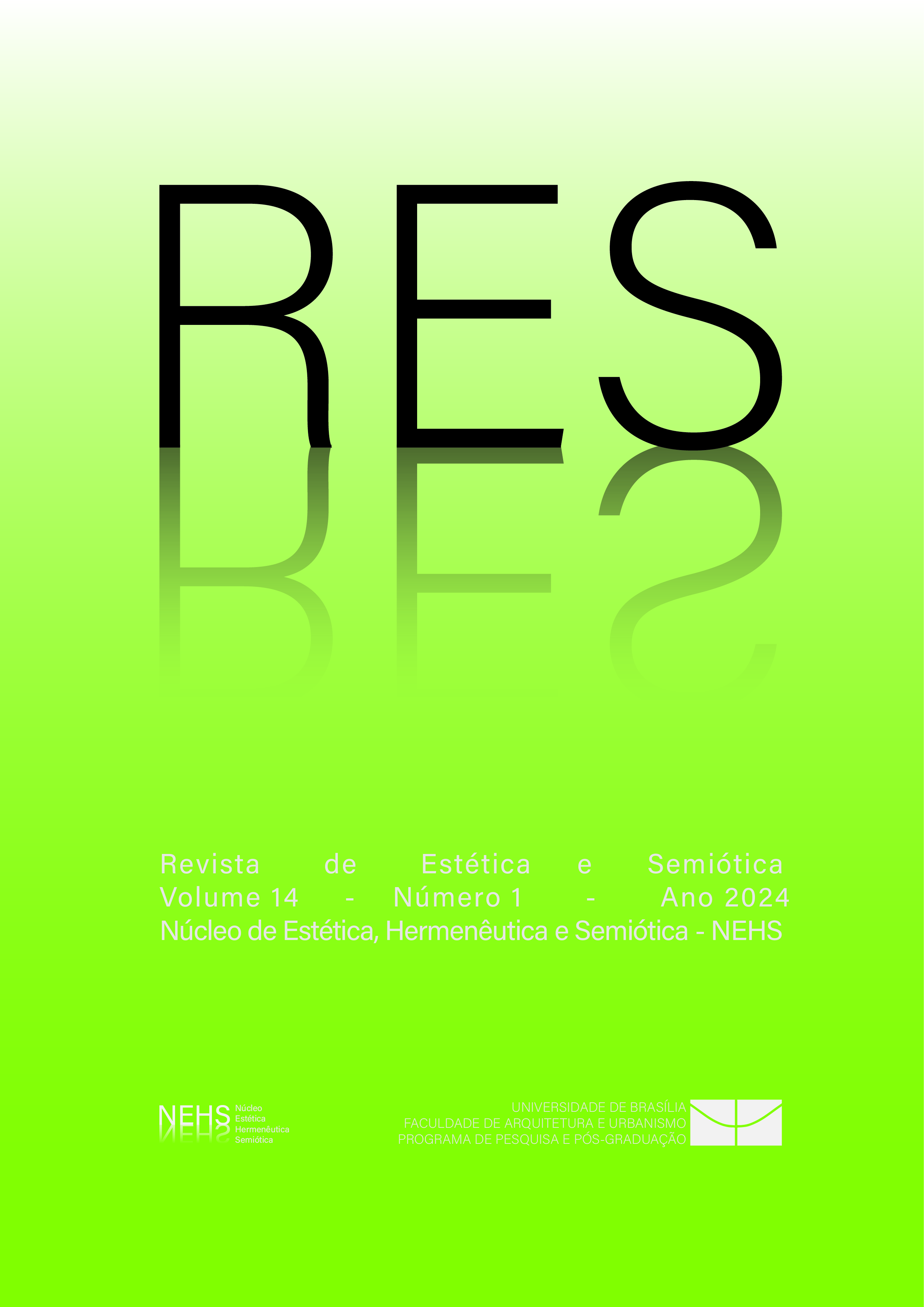Lares, cellulares. About architecture and domestication
DOI:
https://doi.org/10.18830/issn2238-362X.v14.n1.2024.04.Keywords:
Deuses Lares, Private property, domestication, cell phones, specters.Abstract
In the oikos, in the domus, in the cult of the ‘deuses lares’, domestication is rooted, as well as the ethics of hospitality, the question of the familiar versus the unfamiliar, themes that include the ancient and cultural problem of the home, the cult of the dead, and later they will move to the worship of monuments. The article also shows how the issue of the dead was and continues to be decisive in the domestication process, especially in the issue of the modern city in the 20th century with Le Corbusier. The article also seeks to highlight the persistence of the sacred fire, now no longer through the home gods, the ancestors; and that this fire brought together all family members, and they listened to the laws pronounced by the gods generation after generation. This fire was replaced in the Modern Age by machines – before radio, then television, today the computer and most emphatically its apotheosis in cell phones, the new cellular gods of the supremacy of individualities –, and now they domesticate us in another way through consumption. Finally, the article is based on authors such as: Fustel de Coulanges, Jean-Claude Schmitt, Jacques Derrida, John Zerzan, Peter Sloterdijk, Hannah Arendt
Downloads
References
ARENDT, Hannah. A condição Humana. São Paulo. Editora Perspectiva. 1980.
CIXOUS, Hélène; DERRIDA, Jacques. Idiomas da Di¬ferença Sexual. Palimage. 2018
COULANGES, Fustel. A cidade antiga. São Paulo. Martins Fontes. 1981.
DERRIDA, Jacques. Espectros de Marx. Tradução: Anamaria Skinner. Rio de Janeiro: Relume Dumará, 1994.
CHEFE SEATTLE. Carta Resposta do Chefe Seattle ao Presidente dos Estados Unidos F. Pierce. Em http://www.comitepaz.org.br/chefe_seattle.htm
ENGELS, Friedrich. A Origem Da Família, Da Pro¬priedade Privada e do Estado. Rio de Janeiro: Civili¬zação Brasileira, 1984. Tradução de Leandro Konder.
FEDERICI, Silvia. Calibã e a bruxa. São Paulo. Edito¬ra Elefante. 2017
FUÃO, Fernando. Desconjuro moderno. Em: Fuão, F. (org.) Desconjuro Moderno. Porto Alegre. UFRGS. 2020
FUÃO, Fernando. Desconjuro moderno. Em: ht-tps://fernandofuao.blogspot.com/2020/05/descon¬juro-moderno-fernando-freitas.html
FUÃO, Fernando.. Em FUÃO, F.; VIECELLI, A.: A porta, a ponte, o buraco, um orelhão. Coleção Querências de A porta Derrida, moradas da arquitetura e filoso¬fia, Porto Alegre, 2015, UFRGS, CNPq, Capes.
FUÃO, F.: Querências de Derrida. Em: Fuão, F.(org.), Arquitetura e Desconstrução. Coleção Querências de Derrida, moradas da arquitetura e filosofia, Porto Alegre, 2015, UFRGS, CNPq, Capes
LE CORBUSIER. Vers une architecture. 2.ed. Les Éditions G. CRÈS, 1924, Paris, p. 6.
LE CORBUSIER. Por uma arquitetura. São Paulo. Editora Perspectiva. 1983.
NESBITT, Kate. Uma nova agenda para a arquitetu¬ra. São Paulo: Cosac Naify, 2006; p. 454.
RIEGL, Alois. O culto moderno dos monumentos. Goiânia, Editora da Universidade Católica de Goiás, 2006.
SAITO, Kohei. Confining Marx to the nineteenth cen¬tury ongareth-stedman Jones. Em: https://www. imhojournal.org/articles/confining-marx-to-the-ni¬neteenth-century-on-gareth-stedman-jones/
SCHMITT, Jean-Claude. Os vivos e os mortos, na sociedade medieval. São Paulo. Editora Schwarcz Ltda. 1999.
SLOTERDIJK, Peter. Esferas 3. Espumas. Barcelona. Ed. Siruela, 2003.
ZERZAN, John. Patriarquismo, Civilização e as Ori¬gens do Gênero. Em http://ervadaninha.sarava.org/ patriciv.html.
Downloads
Published
How to Cite
Issue
Section
License
Copyright (c) 2024 Fernando Freitas Fuão

This work is licensed under a Creative Commons Attribution-NonCommercial 4.0 International License.




